Headline News Archive
![]()
Studying the precipitation patterns in hurricanes may be key to predicting future storm patterns and their potential strength, a University of Florida researcher has found.
Supported by a four-year, $212,000 grant from the National Science Foundation, Professor of Geography Corene Matyas, Ph.D. has identified the patterns of rain rates within storms and studied the moisture surrounding these storms.

According to the Florida Fish and Wildlife Conservation Commission, Florida has one of the most active artificial reef programs. Bay County alongside the UF-IFAS extension deployed 10 more artificial reef structures.
The structures are shaped like pyramids, with holes so fish can swim through. They were even purposely engineered so sea turtles could fit through the top and bottom holes.
Deploying these reefs is beneficial not just to the environment but also to the economy, bringing new locations for fishing and diving.

Public lands give so much more than they take or cost, providing critical ecosystem services that are beyond value.
Our public lands – local, state or federal – are the birthright of all Americans. Conservation and recreation agencies hold and manage them in public trust, but they belong to us. They are our legacy and our responsibility.
FULL PIECE
Early warning systems, resilient infrastructure and nature-based solutions are cost effective in reducing economic losses.
Florida is no stranger to disasters. From hurricanes and flooding to extreme heat, the state experiences the devastating impacts of climate-driven hazards year after year.
In 2024 alone, Florida faced significant damages from hurricanes Helene and Milton, underscoring the urgent need to shift from reactive disaster response to proactive disaster risk reduction (DRR).
The economic toll of these disasters is staggering. Hurricane Helene, which struck the Big Bend region in September 2024, caused widespread damage, including the destruction of 90% of homes in Keaton Beach and significant losses in Gulfport and Tampa Bay.
When Hurricane Idalia hit the Big Bend region of Florida in 2023, Jeff Carney and his team were watching. A coalition of architects, planners, and landscape architects led by Carney worked closely with the tiny Gulf island of Cedar Key, which is particularly vulnerable to hurricanes, to prepare for this moment. The researchers had modeled for city officials how a major storm would flood the city’s core services.
Read full story: https://news.ufl.edu/2025/02/florida-resilience/.
In just five years, 930 million cubic meters of crevasses opened up in the Greenland ice sheet, equivalent to adding a crack the size of the Great Pyramid of Giza to the world’s second largest ice sheet every few days. The increased crevassing, especially prominent in fast-flowing portions of the ice sheet, could lead to a feedback loop that accelerates ice loss from the glacier, which ultimately raises sea levels. Greenland’s ice melt has added 0.4 inches to sea levels since 1992 and is estimated to add another foot by the end of the century.
View full story: https://news.ufl.edu/2025/02/greenland-crevasses/.
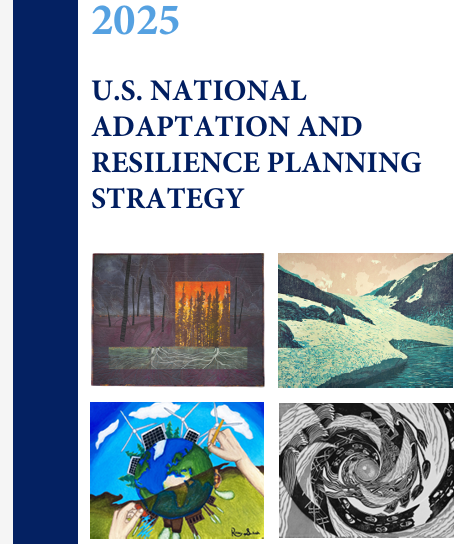 The U.S. National Adaptation and Resilience Planning Strategy provides a critical blueprint to help our nation adapt to and prepare for the immediate, medium-, and long-term consequences, impacts and risks of a changing climate. The plan offers a roadmap for our nation, states and local communities to save lives and livelihoods, protect business investments and our economy, safeguard national security, and help secure a resilient future for our nation from the wide-range of climate risks.
The U.S. National Adaptation and Resilience Planning Strategy provides a critical blueprint to help our nation adapt to and prepare for the immediate, medium-, and long-term consequences, impacts and risks of a changing climate. The plan offers a roadmap for our nation, states and local communities to save lives and livelihoods, protect business investments and our economy, safeguard national security, and help secure a resilient future for our nation from the wide-range of climate risks.
Read the comprehensive guidance document

"Some of the islands that we have visited before and saw nesting, now we see nothing." Florida biologists are closely monitoring how alligators in the Everglades are responding to rising global temperatures, and they're concerned about what they've found so far. What's happening? Scientists from the University of Florida "Croc Docs" team are studying threatened American alligators to help assess the impacts of rising global temperatures in the Everglades. The Miami Herald reported on the team, explaining that alligators are a good target species for this type of research because they are sensitive to environmental changes.
Read more in The Cool Down
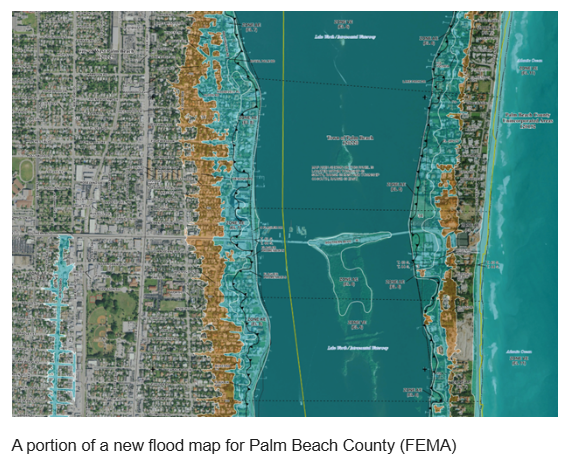 By Katie Carpenter, Everwild Media
By Katie Carpenter, Everwild Media
The new maps mean more Floridians will be required to buy flood insurance.
Florida is considered the most flood-prone state in the U.S., closely followed by Texas, Louisiana and New Jersey. After hurricanes Helene and Milton broke flooding records last year, more homeowners are starting to pay attention, but not all.
The Federal Emergency Management Agency (FEMA) released its widely anticipated new flood risk maps on Dec. 20, and unsuspecting residents learned that they may now be required to buy flood insurance. In Palm Beach County alone, more than 16,000 properties have been impacted. Many have been told they have an increase in required base flood elevation of 1 foot or more.
Read the FULL ARTICLE
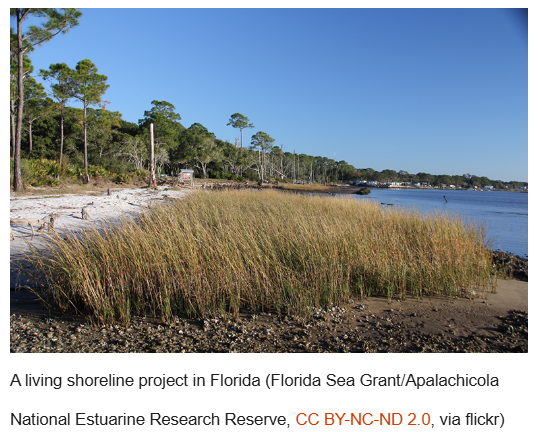 By Carrie Schuman, Conservancy of Southwest Florida
By Carrie Schuman, Conservancy of Southwest Florida
Hurricanes Debby, Irma, Ian, Helene and Milton are “five good reasons” the Conservancy of Southwest Florida hosted “Working with Nature: Nature-Based and Hybrid Solutions for Resilient Communities” last month, said Rob Moher, president and CEO of the Conservancy.
Nature-based solutions (such as mangrove forests, salt marshes and beach dunes) or hybrid solutions, which combine nature-based elements with engineered options (such as seawalls, levees and culverts) can address the challenges Moher outlined.
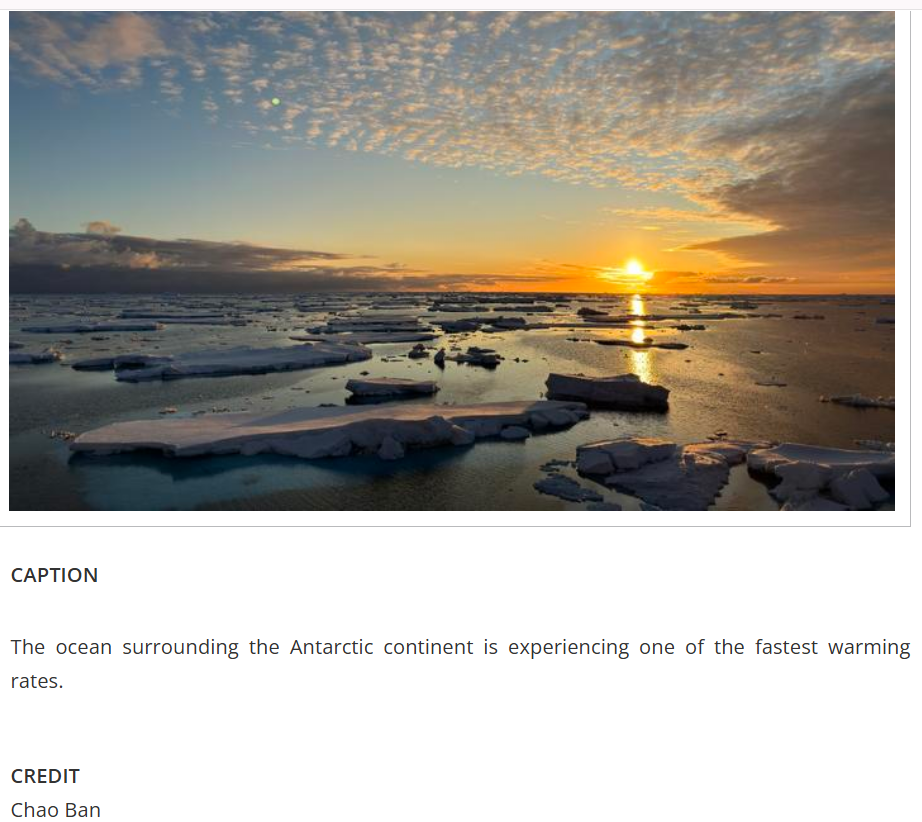 A new study published in Advances in Atmospheric Sciences has found that ocean warming in 2024 has led to new record high temperatures. The ocean is the hottest it has ever been recorded by humans, not only at the surface temperature but also for the upper 2000 meters.
A new study published in Advances in Atmospheric Sciences has found that ocean warming in 2024 has led to new record high temperatures. The ocean is the hottest it has ever been recorded by humans, not only at the surface temperature but also for the upper 2000 meters.
“The broken records in the ocean have become a broken record.” Said Prof. Lijing Cheng with the Institute of Atmospheric Physics at the Chinese Academy of Sciences. He led a team of 54 scientists from 7 countries and discussed how a hotter ocean affects our lives on land and what this means for our future.
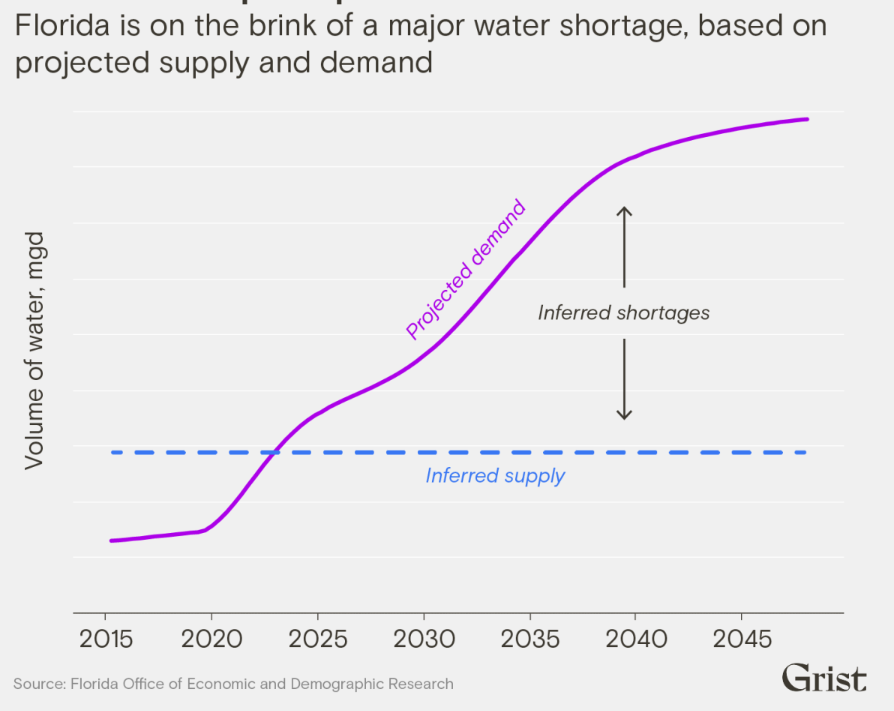 An intensifying climate, overexploitation of groundwater, and a development boom have catalyzed a looming water supply shortage — something that once seemed impossible for the rainy peninsula.
An intensifying climate, overexploitation of groundwater, and a development boom have catalyzed a looming water supply shortage — something that once seemed impossible for the rainy peninsula.
Like many places worldwide, the dwindling freshwater availability in Florida is being exacerbated by a warming atmosphere. Sea levels in the state’s coastal regions have already risen dramatically in the last few decades, pushing salt water into the groundwater and creating an impotable brackish mixture that is costly to treat.
Read Sachi Kitajima Mulkey's & Ayurella Horn-Muller's FULL ARTICLE in Grist

As climate change pushes seas to rise ever higher, shallow groundwater could become a more costly hazard across the Atlantic coast, particularly in South Florida where the water table sits just feet below the surface, according to a new study from the U.S. Geological Survey.

With a central focus on climate finance, COP29 brought together nearly 200 countries in Baku, Azerbaijan, and reached a breakthrough agreement that will:
- Triple finance to developing countries, from the previous goal of USD 100 billion annually, to USD 300 billion annually by 2035
- Secure efforts of all actors to work together to scale up finance to developing countries, from public and private sources, to the amount of USD 1.3 trillion per year by 2035
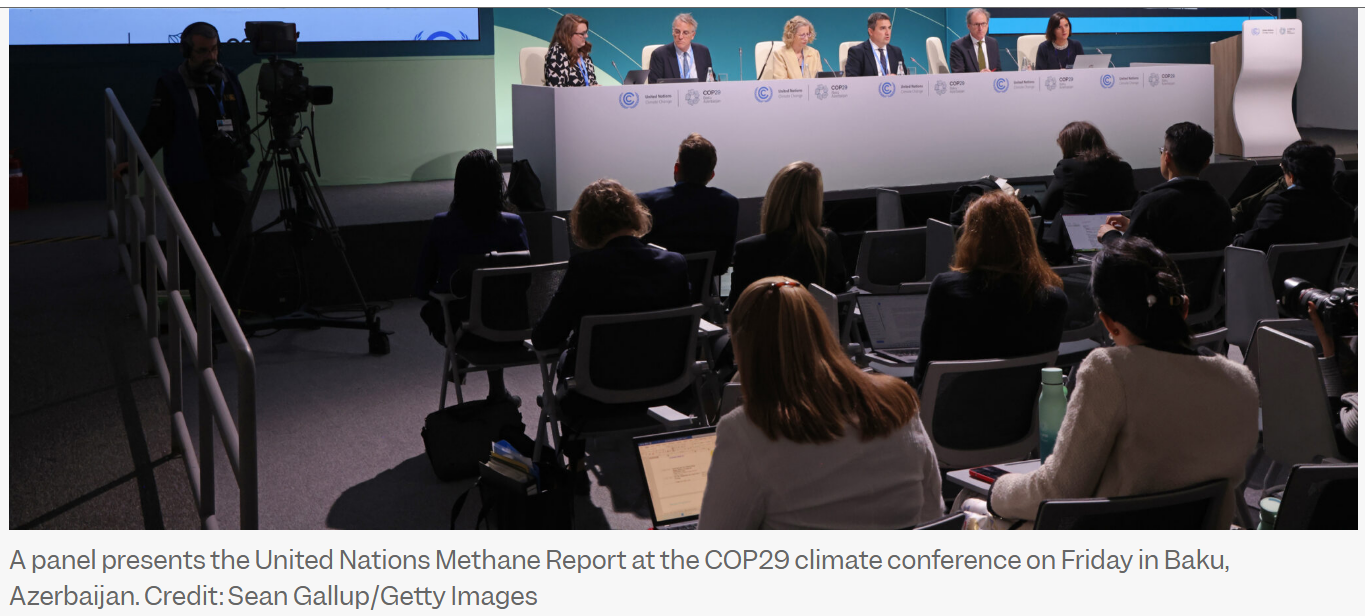
What was billed as a “sprint to cut climate super pollutants” may soon slow to a jog.
Top climate diplomats from the U.S., China and host country Azerbaijan gathered at COP29, the United Nations Climate Conference in Baku, this week to host a summit on methane and other “non-CO2” greenhouse gases.
However, efforts to curb emissions of these climate super pollutants—greenhouse gases that on a pound-for-pound basis are far more effective at warming the planet than carbon dioxide—are likely to stall under President-elect Donald Trump. He has pledged to pull the U.S. out of the Paris climate agreement, and the oil industry is lobbying him to roll back emission regulations.

Despite national election results that have left environmentalists and their allies wary of what’s to come in the next four years, ballot initiatives related to climate policies fared well across the country on election day.
At least five of six ballot measures related to climate change resulted in what most environmentalists consider wins. But state legislative races across the country that could impact climate policy had more uneven results.

For Florida’s Native American tribes, the watershed is sacred. A new National Academies report says the federal and state agencies guiding Everglades restoration can learn a lot from them.
Now a new report on the progress of the $21 billion effort to restore the vast watershed acknowledges a lack of meaningful engagement with the Miccosukee and Seminole tribes, who consider the soaring cypress swamps and sweeping sawgrass prairies of the river of grass that saved them from annihilation more than 100 years ago to be sacred.
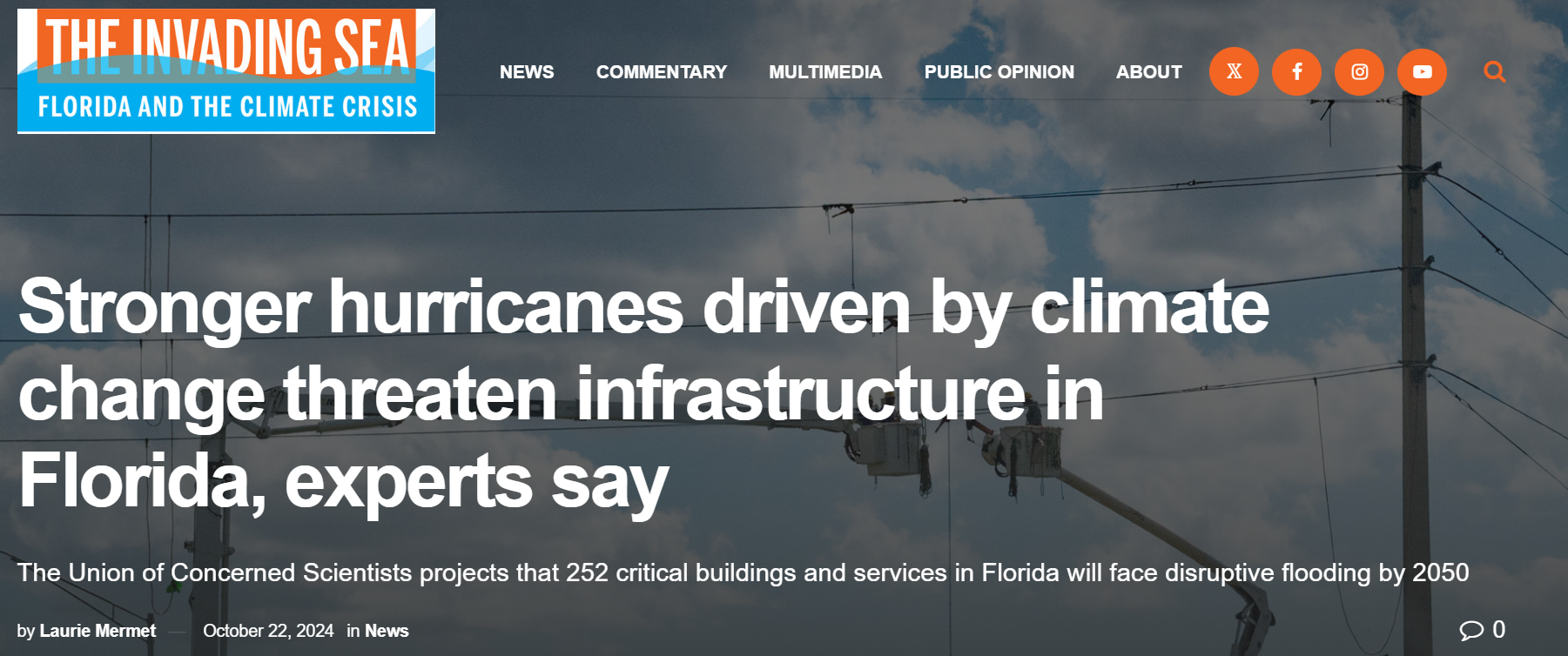
The combination of more intense storms and rising seas poses a critical challenge for coastal infrastructure, particularly in Florida, where many communities are built near the water.
Hurricanes Milton and Helene caused major damage to coastal infrastructure, especially in the Tampa Bay area, such as Helene causing nearly 1.5 million gallons of sewage spilling in St. Petersburg and Milton leading to widespread power outages along the Gulf Coast.
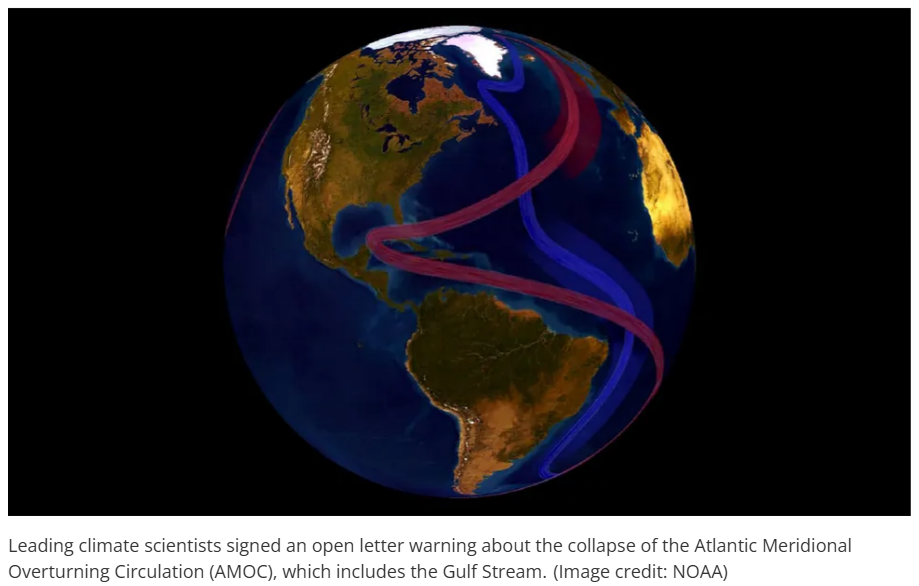 Forty-four of the world's leading climate scientists have called on Nordic policymakers to address the potentially imminent and "devastating" collapse of key Atlantic Ocean currents.
Forty-four of the world's leading climate scientists have called on Nordic policymakers to address the potentially imminent and "devastating" collapse of key Atlantic Ocean currents.
- NOAA awards grant to enhance decision-ready climate projections for diverse stakeholders
- In the Climate Emergency, Conservation Must Become Survival Ecology
- Five Key Takeaways in the Aftermath of Hurricane Helene
- 'A warmer, sicker world': Mosquitoes carrying deadly diseases are on an unstoppable march across the US












